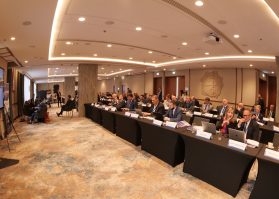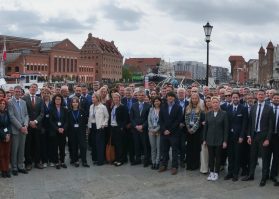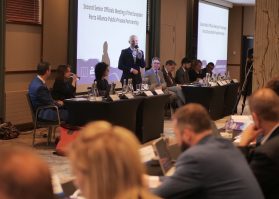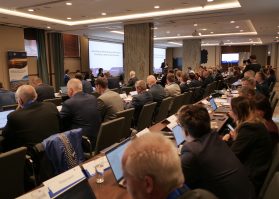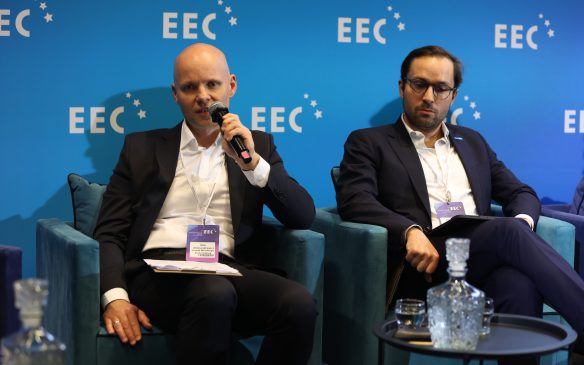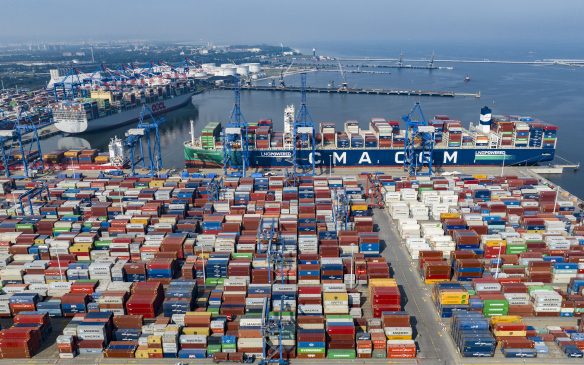European ports unite for joint security

The meeting between the representatives of the European Ports Alliance took place for the second time, this time in Gdańsk. The event brought together 120 key representatives of EU institutions, European ports, security services and the private sector, the latter offering security solutions. They discussed challenges and ways forward to fight organised crime and drug trafficking by sea.
The European Ports Alliance is an initiative launched a year ago in Brussels in response to the need to strengthen the partnership between European Union ports and to address growing cross-border threats. The event was organised by the European Commission and the Polish Presidency of the Council of the European Union in close partnership with the Port of Gdańsk.
The Port of Gdańsk is the only Polish port participating in this initiative, demonstrating its commitment to improving port security and jointly combating smuggling, cyber attacks and all forms of crime that threaten not only individual countries but the entire supply chain.
‘Nowadays, as ports become increasingly digital, complex and globally interconnected, their security is fundamental to economic stability, public safety and resilience to hybrid threats. The Port of Gdańsk has a special role in this. We’re the biggest port in Poland, a gateway to the world for a lot of strategic goods, and also a place with security issues that matter not just operationally, but also symbolically’, said Alan Aleksandrowicz, Vice President of the Port of Gdańsk, welcoming conference participants together with representatives of the European Commission.
This part of the meeting also featured presentations of two EU-funded research and development projects: BorderSens and METEOR, state-of-the-art drug detection technologies.
The main part of the meeting, co-chaired by Olivier Onidi from the European Commission’s Directorate-General for Migration and Home Affairs (DG Home) and Matthias Petschke from the European Commission’s Directorate-General for Taxation and Customs Union (DG TAXUD), included presentations on the threats related to drug smuggling by sea, delivered by representatives of Europol, the European Monitoring Centre for Drugs and Drug Addiction (EMCDDA) and the Rotterdam Port Police. Alan Aleksandrowicz from the Port of Gdańsk spoke about activities aimed at protecting the port’s infrastructure. Representatives of the World Shipping Council and the Federation of European Private Port Companies and Terminals (FEPORT) also contributed to the discussion.
Particular attention was paid to projects aiming to increase port security: UnderSec and SMAUG, new solutions for the protection of underwater infrastructure. Furthermore, representatives of the Coalition of Seven European Countries Against Organised Crime, namely Belgium, France, Germany, Italy, the Netherlands, Spain and Switzerland, presented a working document concerning a more effective strategy for EU ports to combat organised crime.
Further discussions focused on summarising the Alliance’s activities during its first year of operation, discussing priorities for the coming year and plans for the development of a comprehensive EU strategy for ports. The conference culminated in a closing session, which emphasised the need to strengthen the partnership even further.
‘Both the establishment of the European Port Alliance and the second meeting organised in Gdańsk are important steps towards building safer trade routes in Europe and strengthening the partnership between ports, security services and the private sector’, concluded Alan Aleksandrowicz.

